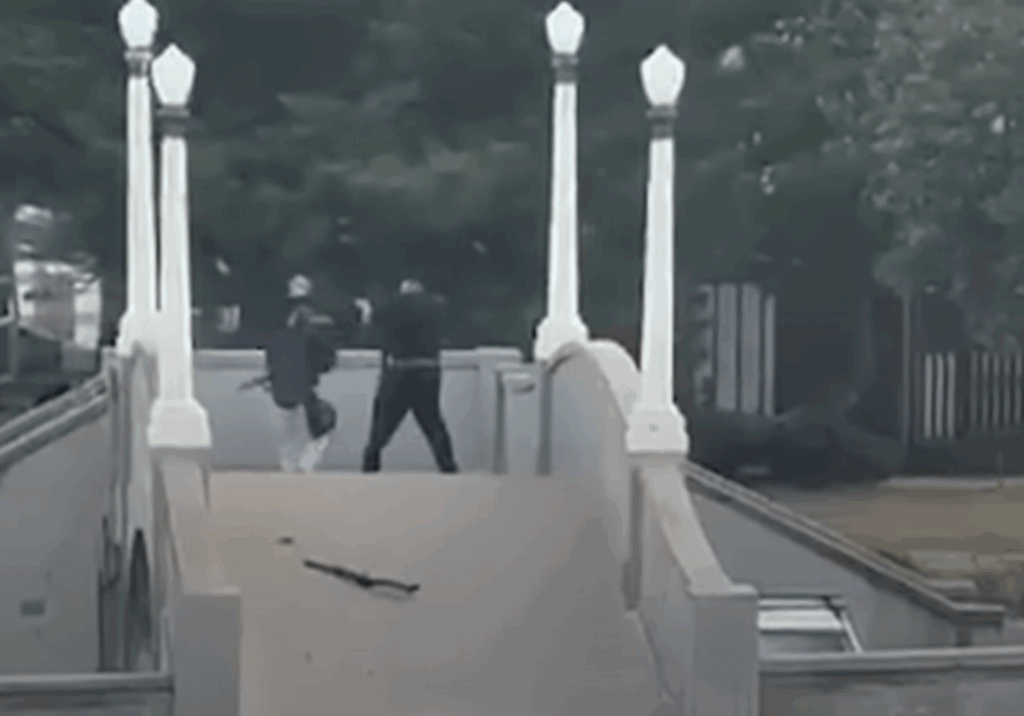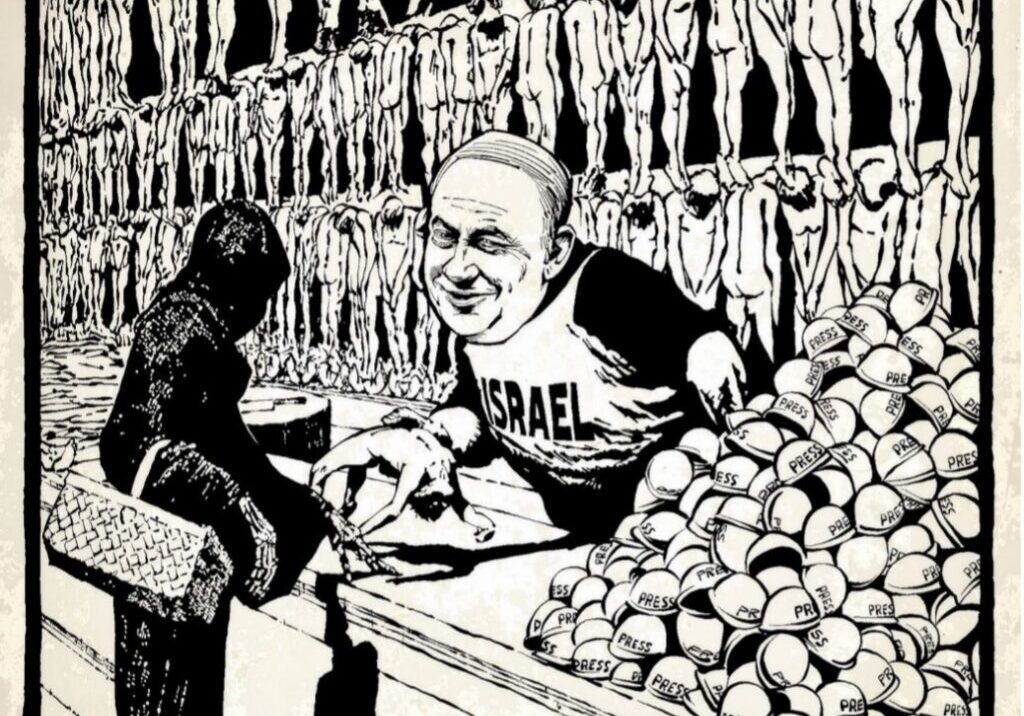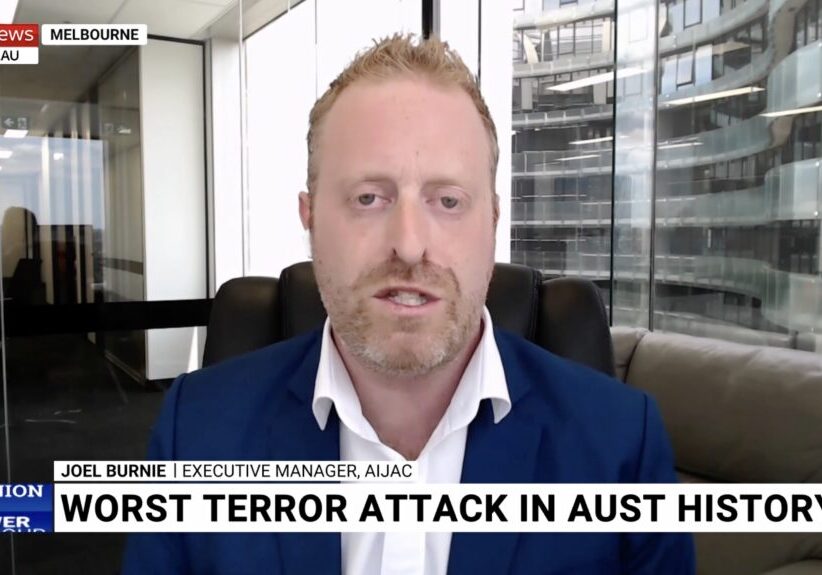Australia/Israel Review
Hamas, now here to stay
Jun 30, 2010 | Barry Rubin
By Barry Rubin
In dealing with Hamas-ruled Gaza, Israel has looked for a policy that preserves its security to the maximum extent, undermines Hamas as much as possible, and reduces international criticism, in that order of priority. Thus, the Cabinet on June 20 approved an altered strategy on the Gaza Strip.
The main principle can be summarised as placing the emphasis on anything that can be used for military purposes against Israel but easing up on the destabilisation efforts. This makes sense since the international community’s protection of the Hamas regime – despite the fact that it is a revolutionary Islamist, terrorist, genocide-intending, anti-Western client of Iran that will fight Israel and subvert Egypt in the future – makes its overthrow impossible any way.
The June 20 Israeli Cabinet decision states:
“Israel’s policy is to protect its citizens against terror, rocket and other attacks from Gaza. In seeking to keep weapons and war materiel out of Gaza while liberalising the system by which civilian goods enter Gaza…”
Thus, the first principle is:
“1. Publish a list of items not permitted into Gaza that is limited to weapons and war materiel, including problematic dual-use items. All items not on this list will be permitted to enter Gaza.”
This is a great contraction of previous lists. A range of construction materials – cement, which can also be used for military bunkers; pipes that can be used for making rockets – must be watched closely. Hence, point 2:
“2. Enable and expand the inflow of dual-use construction materials for approved PA-authorised projects (schools, health facilities, water, sanitation, etc.) that are under international supervision and for housing projects such as the UN housing development being completed at Khan Yunis. Israel intends to accelerate the approval of such projects in accordance with accepted mechanisms and procedures.”
The theory is that international agencies will make sure the materials are used for building nice things, not pillboxes and reinforced bunkers. No doubt Israel will report on whether this promise is kept (though reports to the contrary will probably be ignored).
The land crossings will be expanded to admit more materials at a faster rate for sending into the Gaza Strip, and procedures for letting people leave to get medical treatment or other purposes will be streamlined.
What does Israel get in exchange?
The decision states: “The current security regime for Gaza will be maintained. Israel reiterates that along with the US, EU and others, it considers Hamas a terrorist organisation. The international community must insist on a strict adherence to the Quartet principles regarding Hamas.” In other words there will be the continued political isolation of Hamas which, by the way, is still holding Israeli soldier Gilad Shalit captive.
What does Israel give up? The entire strategy of trying to reduce Gaza’s economy and the rewards that Hamas can give its supporters. In other words, while Hamas’ military capacity is kept as low as possible it can politically consolidate and stay in power for decades. While this represents a considerable “retreat” it is not so meaningful in practice since – as noted above – nobody is going to help Israel or allow it to overthrow the regime in Gaza.
So, this is the future: A revolutionary Islamist statelet, an outpost of Iran, a base for spreading terrorism and subversion, a source for genocidal antisemitic propaganda, has been established for the long term on the shores of the Mediterranean. For all practical purposes, one could have made this declaration tentatively two or four years ago. Now it is clear.
Some people might find the above paragraph to be controversial. But it is all obvious. Hamas will be in power in the Gaza Strip for a long time. Who is going to remove it? It is a client of Iran. Certainly it is under embargo for arms but it does function a lot like an independent state for daily practical purposes. It will return to war against Israel at the first opportunity. It teaches its people to kill Jews and wipe Israel off the map and to be terrorists. That doesn’t mean all Gazans support it, but those who don’t can do nothing about it. Moreover, the Hamas regime receives indirect aid, due to the Palestinian Authority paying much of its civil service and Western projects designed to help Gaza’s people.
Yes, of course there are limits on what it can do given its size and the pressure still put on by Egypt and Israel. But the above paragraph is an accurate description. Putting it bluntly sounds harsh, but the reality is harsh indeed.
And what could be more ironic than the fact that Western governments frantic for an Israeli-Palestinian peace have just helped put one more gigantic roadblock in the way of such an outcome? Even without Hamas ruling almost half of those under Palestinian rule, the Palestinian Authority probably wouldn’t be able to make peace. The consolidation of a Hamas state makes that inability a certainty.
While a change in Israeli policy can be said to mark this new era, the outcome should not be blamed on the Israeli Government since the situation was already in place and made inevitable by Western policy. The world has no idea what it has done, how many bad things and how much bloodshed will arise from this failure. In future, it will become very familiar with this reality. People will write about this being true in five or ten years. You are reading about it right now.
Professor Barry Rubin is Director of the Global Research in International Affairs (GLORIA) Centre and Editor of the Middle East Review of International Affairs (MERIA) Journal. His latest books are Lebanon: Liberation, Conflict, and Crisis (Palgrave Macmillan), Conflict and Insurgency in the Contemporary Middle East (Routledge) and The Israel-Arab Reader (seventh edition) (Viking-Penguin). To subscribe to GLORIA publications or order books, visit www.gloria-center.org.
Tags: Islamic Extremism






